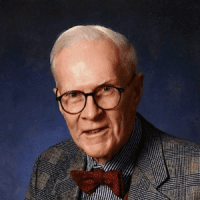The end of summer found the Washington headquarters staff wrapping up its summer tasks and preparing for a busy fall season of meetings.
The final version of the 1991 annual meeting Program was sent off to the printer after a flurry of last-minute corrections and insertions. The auditors’ report on our fiscal year ending June 30 is always a “stop-the-press” item, but this year it was several days slower than usual. Happily the news from the auditors is good, in that our trustees and bankers in New York have during the year taken profits for us on several of our highly successful investments. Even though investment earnings of our endowments are “rolled over” into fresh investments rather than treated as income, it is nice to see a healthy, five-digit number in black on our bottom line.
The schedule of the AHA’s committee meetings this fall gives an idea of our multifarious activities. On the first weekend in September, the Bill of Rights Education Collaborative’s board met at the Washington Hilton to review the first year’s operation of this project and to make additional regrants to help school faculties more effectively to teach this subject during the bicentenary year of the Bill of Rights. As members recall, we and the American Political Science Association are collaborating in this important initiative, funded by the Pew Charitable Trusts.
At the end of the month the AHA’s own Committee on Minority Historians will meet, followed the next weekend by an editorial board meeting of the Guide to Historical Literature (3rd. ed.) project at which almost all of the section editors will participate.
October and early November will see the three AHA divisional committees convening in Washington, beginning with the Research Division and followed by the Teaching and Professional Divisions.
We have also completed and submitted to NEH on August 30 major grant proposals for two undertakings. We are applying to NEH for a substantial part of the funds for the final two years of the Guide, and we are also proposing a quincentenary launch for a joint project with the University of Florida and the Conference on Latin American History on improving access to Latin American and Hispanic materials in United States repositories. As our Latin Americanist members know all too well, there is no central guide to all manuscript collections dating from before 1900 that are in United States repositories and that concern or originate in Latin America or the Hispanic Caribbean. Our proposal would fund a major effort to identify such collections and prepare an electronic database to include size, contents, and geographical and chronological range and the existence of any finding aids.

